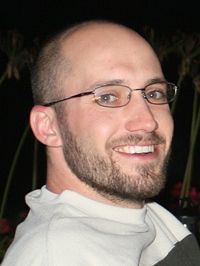Stephen Posner: Difference between revisions
From Santa Fe Institute Events Wiki
(New page: I am curious about the ecological and physical underpinnings of all economies. How do ecosystems support economic activity, and how are they impacted by it? How might we measure the sustai...) |
No edit summary |
||
| Line 1: | Line 1: | ||
[[Image:posner pic.jpg|200px|thumb|left|smile]] | |||
I am curious about the ecological and physical underpinnings of all economies. How do ecosystems support economic activity, and how are they impacted by it? How might we measure the sustainability of these relationships and the resilience of the systems at work? | I am curious about the ecological and physical underpinnings of all economies. How do ecosystems support economic activity, and how are they impacted by it? How might we measure the sustainability of these relationships and the resilience of the systems at work? | ||
Latest revision as of 13:26, 12 June 2010

I am curious about the ecological and physical underpinnings of all economies. How do ecosystems support economic activity, and how are they impacted by it? How might we measure the sustainability of these relationships and the resilience of the systems at work?
As a research assistant at the Gund Institute for Ecological Economics at the University of Vermont, I focused broadly on sustainable development indicators and specifically on the Genuine Progress Indicator (GPI). The GPI uses monetary valuation to incorporate environmental, social, and economic information into a framework for guiding policy decisions (for example, the cost of nonrenewable resource depletion, the value of volunteer work, the cost of commuting). I applied the GPI at multiple scales in Maryland, where the state government recently presented GPI as their new measure of sustainable economic prosperity to capture what traditional economic indicators miss.
This past year I explored management strategies for reducing campus greenhouse gas emissions as an energy fellow with the University of Vermont Office of Sustainability and the Rocky Mountain Institute, where I also co-managed the first university Clean Energy Fund grant program and provided economic analysis to the university climate action plan (what will it cost for an institution to be carbon neutral, and how might they pay for it?).
I currently work as an economist with the World Resources Institute, measuring how businesses impact and depend on ecosystem services. This involves determining the economic value of services provided by nature for free, such as carbon sequestration, pollination, or recreational activities.
As I begin a PhD program in engineering and environmental sciences at Dartmouth, I am thinking about uncertainty in energy and climate models, ecosystem services, and how economic systems can adapt to changing environmental and economic conditions.
